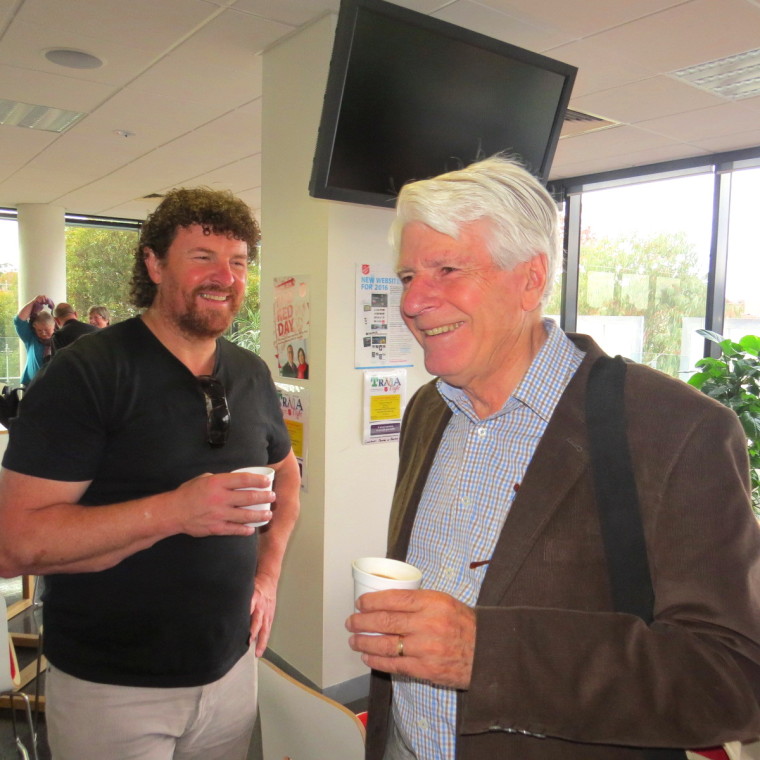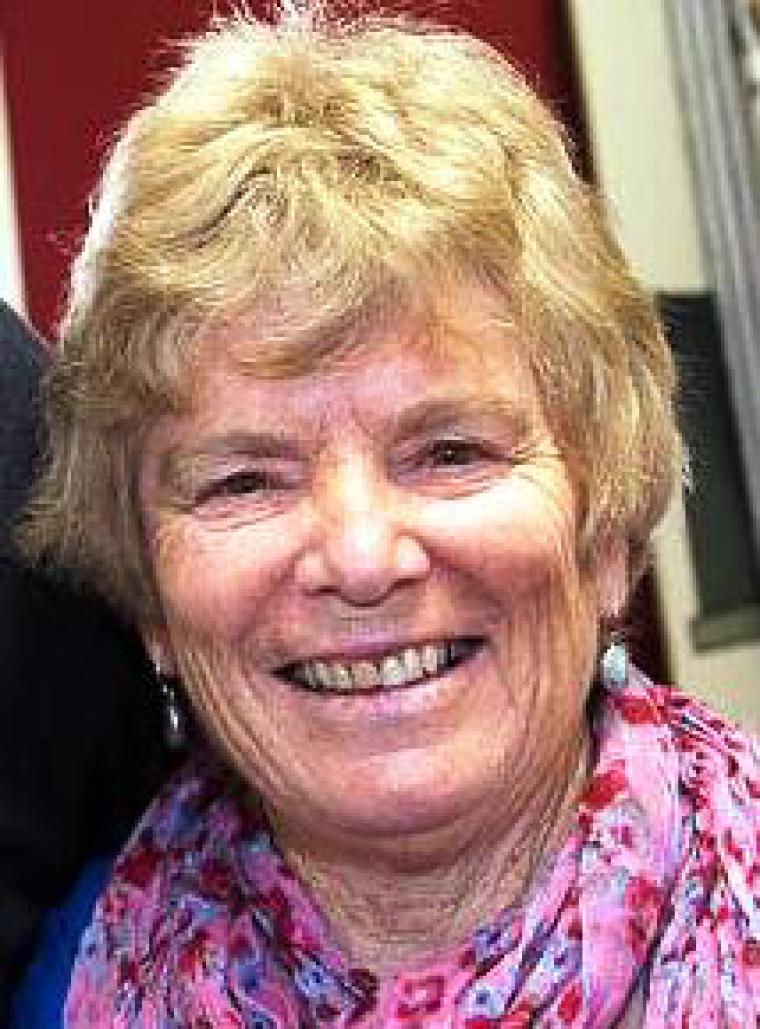

'One Day in Melbourne—Evangelicals Online' was a one-day gathering for editors, writers, designers, social media mavens, authors, bloggers, self-publishers—anyone in Christian media whose aim is to maximise the Gospel - held last Saturday.
It's philosophy was to provide a top of-the-line presentation to the forgotten Christian media: Missionary/mission publication editors, bloggers and small Christian media groups. 50 attended, representing 24 mission agencies along with bloggers and writers.
Sessions 3 and 4 were Platforms and Design.

Rev Bob Thomas—Platforms
Editor New Life – Australia's Evangelical fortnightly newspaper
"The author writes good material - the editor makes it look good," was how Bob Thomas 71, initiated his session, telling us his story in the publishing world. He emphasised that the key to writing, or creating sermons is the personal daily bible study and turning what you read into a traditional short story.
The idea of the 'short story' was central to Bob Thomas' session. "If you do this you will have lots of sermons crying out to be preached." He spoke how he regularly attended various denominational churches when growing up and this stood him in good stead for his life's non-denominational publishing ministry.
He quoted Psalm 119 verse 76, "I am the friend of all those who fear thee oh Lord." Bob Thomas noted this is central for editors of "non-denominational" publications such as New Life bye-passing denominational controls and criticisms.
He gave chapter and verse of the various platforms he witnessed first hand over the past fifty years. He went through them all, from the pre-computerisation (typewriters), the dawn of computerisation (DOS 2.0), all the way through to the internet. If anything in publishing, standardisation is key – whether it was DOS to a MACBOOK which is a laptop that does the job of seven full time people.
Hard copy publishing became more difficult and expensive, it was costing New Life more in postage than production. Now, with internet publishing, New Life goes direct to over 2000 people through email and mailchimp and with the nature of sharing and spreading it reaches many thousands more citing numerous examples.
Bob Thomas said New Life's readership is younger now, more diverse and has a greater reach than it ever had when it was just in 'print'. An issue from moving to the internet for New Life, was the age of the original readership not being computer literate. Now he explained, the number of computer illiterate is smaller and of course natural attrition – many of the original readership are now in heaven.
This was a fascinating walk through the history of publishing and printing, of which many of the gathered had no idea how it all worked, particularly the examination of proofs and the work involved when mistakes were found. Today, the task at hand is minimal with spell and grammar checkers, and a keen eye for authenticity and truth.

David Goodwin—Design
Former Editor of On-Fire 'Salvation Army'
David Goodwin is a published writer and his hobby is non-fiction and sci-fi fantasy for which he has a world wide clientele. He spoke of good design principles for websites / blogs and detailed six ways to make your website work.
Readability - colour schemes- think about the experience for the reader, especially using a screen. If people have to squint they wont stay to read your content. Look at your fonts - keep it simple, look at your colours, break it up - using headings, sub headings, manageable paragraphs – readers should not be looking at large blocks of writing
Responsive - mobile website, friendly, shrinks it down to make it easier to read, mobile optimised which changes the layout completely. responsive design -automatically responds to the type of device accessing the site.
Reactive - speed is of the essence. Long load times lose eyeballs, and resize pictures to optimise for the web and avoid GIFs. David spoke of Google analytics - free and can plug it into the back of your website. Never confuse flashy stuff with quality content.
Relationships - build a community, provide people a way of engaging but you must therefore moderate any comments section. He addressed social media plugins- so people can share and engage with your content. The most successful websites are engaging a community- give people a place where they can interact with you and other readers. A huge difference between online and print is the immediacy and the ability to interact with the writer and the other readers in real time.
Reward - make people glad they came to your site. Make it easy to navigate, easy to find the information that they are looking for. Moreover, use Google analytics to see what search terms are being used to bring people to your site. Use keywords (recognise the meta-data, SEO - Search engine optimisation) carefully use it to build trust, not numbers
Remember - it is a crowded internet - lots of white noise out there. If you are taking the time to build / create good content then you want to make sure that your site design in enabling people to access your content, not putting up barriers to your content. Be careful of your advertising - make sure it doesn't turn people away from reading your content
David Goodwin concluded - look out for using pop-ups, many people associate it with advertising. Be careful of SEO providers / specialists, we do not want to be falsely leading people to our websites. We can lose trust and it's almost impossible to win it back.
If you can afford a graphic designer - something to look into. David Goodwin spoke of the application 'ISSUE' - where you can upload PDFs and it will be automatically formatted into an online website. But don't let anything get in the way of the message.
Tomorrow – One Day in Melbourne – Editing and Blogging

Dr Mark Tronson is a Baptist minister (retired) who served as the Australian cricket team chaplain for 17 years (2000 ret) and established Life After Cricket in 2001. He was recognised by the Olympic Ministry Medal in 2009 presented by Carl Lewis Olympian of the Century. He mentors young writers and has written 24 books, and enjoys writing. He is married to Delma, with four adult children and grand-children.
Mark Tronson's archive of articles can be viewed at http://www.pressserviceinternational.org/mark-tronson.html